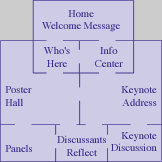|
Michael Fullan, Carol Rolheiser, Blair Mascall, Karen Edge
In this paper we use literacy and to a certain extent numeracy initiatives as examples of attempts at large scale sustainable reform. We first describe the sources we use from our own and others work - a lively body of multi-year attempts at large scale reform. Second, we offer a tri-level model - school/district/state, along with evidence to demonstrate what is necessary at each of these three levels in the pursuit of system-wide reform. Third, we identify an agenda of unfinished business in order to take us to the next level of sustainable reform.
Larry Cuban
from the First Virtual Conference on Local Systemic Change
Private and public agencies have invested large sums of money to reform districts over the past decade. By the end of the first or second year, funders will ask, rarely gently, what the plans are for the continuation of the innovation after the grant ends, and ... project leaders scramble for advice on how to continue the entire project or its key features: "What do we need to do in our district not only to sustain our hard-fought efforts but also to spread the reform's positive effects to the rest of the system?" Funders and innovators who depend upon their monies are deeply interested in the "how-to" of institutionalizing their work. I am also. But I believe other, seldom-asked questions must be addressed along with the "how-to" question. I begin with the popular how-to question and then move to the equally, if not more important question of why a project should be sustained.
Judith Warren Little
This essay posits a problem of "fit" between five streams of reform and prevailing configurations of teachers' professional development. It argues that the dominant "training" model of teachers' professional development--a model focused primarily on expanding an individual repertoire of well-defined and skillful classroom practice--is not adequate to the ambitious visions of teaching and schooling embedded in present reform initiatives. Emerging alternatives to the training model, though small in scale, embody assumptions about teacher learning and the transformation of schooling that appear more fully compatible with the complex demands of reform and the equally complex contexts of teaching.
Jerry D. Valadez
Since 1995, Fresno Unified has been involved in a comprehensive effort to reform science and mathematics education. This systemic effort developed explicit research designs to collect data on student achievement and other important indicators of instructional efficacy. The intent of this analysis is to explore any effects, perceived or direct, of the FOSS curriculum goal: to develop critical thinking skills, promote literacy and increase science content knowledge, on: reading, comprehension and literacy skills.
The National Writing Project
(This link will take you out of the Virtual Conference on Sustainability, to return to the site after reading the resource, just use the BACK button on your browser.)
Ann Lieberman and Diane R. Wood
The National Writing Project, arguably the most successful teacher network in the United States, offers a model of how to foster learning communities of teachers. Begun in 1974 at the University of California at Berkeley and funded primarily by federal grants, the National Writing Project has spawned regional learning communities and more than 165 local sites that help teachers improve how they teach writing and foster student learning. Each site grows out of a school-university partnership. Teachers' participation in the National Writing Project begins on a college campus at a five-week invitational institute that is staffed by university and school-based personnel. Core activities during the summer institutes include sharing best lessons or strategies, participating in small writing groups, and receiving peer feedback. These opportunities to write and reflect with other teachers help create an ongoing social network of teachers that develops throughout the year
|


